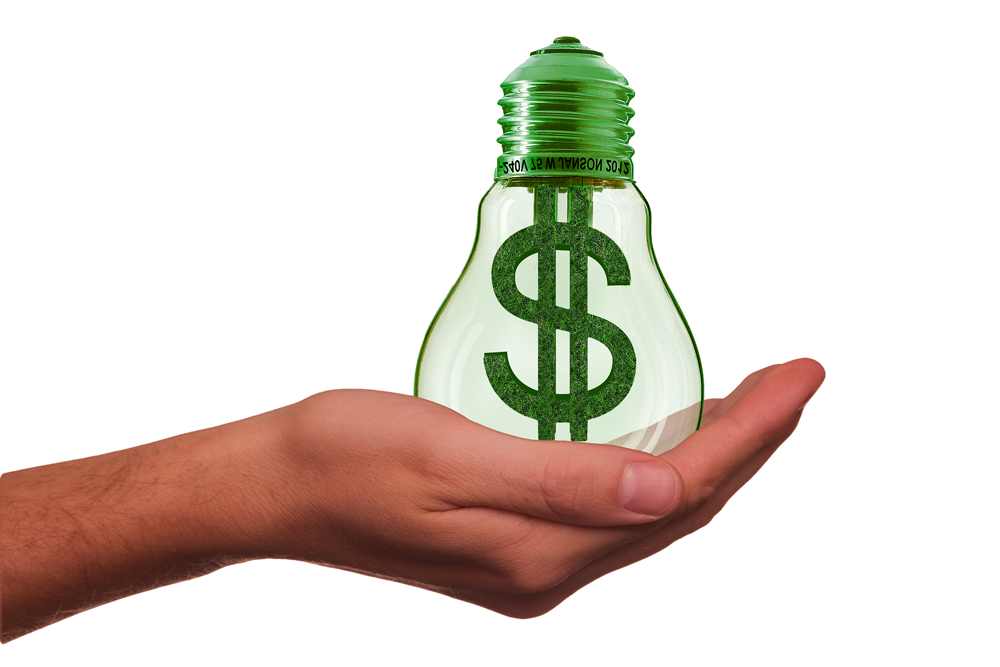
|
The United Nations Intergovernmental Panel on Climate Change draft landmark report leaked in June 2021 warns of a series of thresholds beyond which recovery from climate breakdown may become impossible. “Life on earth can recover from a drastic climate shift by evolving into new species and creating new ecosystems … humans cannot.” according to a report in the Guardian. It’s hardly surprising news. The writing has been on the wall in scientific literature for years. In the Guardian article, Myles Allen, a professor of geosystem science at the University of Oxford is at pains to remind us that we should not feel impotent. “This is a fixable problem. We could stop global warming in a generation if we wanted to, which would mean limiting future warming to not much more than has happened already this century.” It’s not as if we don’t know that we need to change our habits pretty quickly. Nor is it difficult for us to find green alternatives for all our consumer needs. Eco-friendly, sustainable and green versions of most consumables are everywhere from high-tech to clothing and packaging, while the costs of renewable energy are now competitive with those of fossil fuels, especially when subsidised by Governments. So why don't we? We’re more informed about sustainability issues than ever before, yet there is still a long way to go towards shifting to being green. It’s good for the planet, good for our future, so why haven’t we made the switch? Cost? The main reason many people choose to avoid green action is that they think it will cost them more than their usual activities. And to some extent they’re right - often environmentally friendly products come with high up-front costs, but these costs almost always are made back over the lifetime of products. Many environmentally friendly products are far more efficient and cost-effective over their life-time than other, less clean options. On the face of it, saving energy by insulating our homes or installing solar panels seems to make perfect sense. It saves money in the longer term, so why don’t we all do it? According to a research conducted by University of East Anglia (UEA) and University of Leeds, people skip green products because of doubts over performance ability associated with green products - consumers perceive them as being less effective. The research said that while consumers want to buy such products, this rarely results in actual purchases. They often end up buying the conventional alternatives. “People want to do the right thing,” says Rachel Watkyn of sustainable packaging business Tiny Box Company, “but you have to make it straightforward for them. There is still a big gap between attitudes and behaviours. Our products have to be just as good, or better, as non-eco products, or customers will go elsewhere.” Could it be that consumers are unaware that there are tangible economic benefits of going green? This knowledge gap makes consumers unwilling to make decisions that they perceive will cost them more money in the short term. No matter how green they feel themselves to be, if it’s going to cost too much upfront, it is unlikely that they will act on their green impulses.
We're Overwhelmed Consumers might feel their individual ability to improve a huge, widespread, complex problem is limited. Individual consumption changes can seem futile since 70 percent of the world’s greenhouse gas emissions can be traced back to 100 companies, according to a 2017 “Carbon Majors” report by the Climate Accountability Institute. But then again we’re the consumers that demand the fossil-fuelled products that these companies provide. When faced with the sheer scale of climate change - plastics in the ocean, extinctions, shrinking ice caps, global warming - it’s tempting to think that as individuals we can’t can’t make a difference. What does it matter if I switch to eco-friendly washing up liquid? If I take my own shopping bag ? Change a lightbulb? There’s so much we need to research and avoid, and feel guilty about. Faced with that green remorse it’s tempting to indulge in a little climate denial.
It's true that small buying decisions are no substitute for systemic change. In fact, there are a wide range of climate solutions which have nothing to do with our consumer choices. Take family planning and educating girls for example, two of the biggest climate fixes no one is talking about. As Vanessa Nakate writes in Wired “Girls who have been able to go to school grow up to be women who are economically and politically empowered, and who are not forced into early marriage to bear children. Lower fertility can lead to healthier, more secure families, and it reduces emissions well into the future.” While changes like this require political will and international policy change, there is still much we can do to make the small positive decisions we make every day. There are no clear rules about where greenwashing begins and where genuine sustainability leaves off. It’s hardly surprising people are confused about the environmental language used by companies and governments. A global review of randomly selected websites, cited by the CMA, found that 40% of green claims made online could be misleading. Practices include making vague claims and use of unclear language including terms such as ‘eco’ or ‘sustainable’ or reference to ‘natural products’ without adequate explanation or evidence of the claims; the use of own brand eco logos and labels not associated with an accredited organisation and hiding or omitting information such as a product’s pollution levels, to appear more eco-friendly.
An FT article cites findings by two consultancies that asked UK adults what company they thought was leading the way on sustainability they came up with a surprising answer: Amazon. Not everyone agrees, Greenpeace has accused Amazon of taking “two steps back for every step forward”, while Angela Terry, founder of the consumer sustainability website One Home, said Amazon helped push up retail emissions by pioneering fast deliveries. And it’s very difficult to compare like with like. As Dr Regina Henkel says “Is a jacket made of recycled polyester more sustainable than a recyclable shoe? And if a tree is planted for every product sold, does it still matter what kind of product it is?” The CMA has now issued draft guidance for businesses making environmental claims, setting out the best way to communicate their green credentials without the risk of misleading consumers. No matter how scrupulous our research, our choice to be green or not, may, to some extent, be unconscious. Personality traits can be the most decisive components of a consumer's individual practices. Over the recent years, researchers have begun to focus on specific personality traits that influence people to lead more sustainable lifestyles, independent of religious or political beliefs. A sense of moral obligation and altruism are typical of people who choose to lead green lifestyles. What other characteristics can we correlate with sustainable living, and how can we stimulate them in the apathetic majority? Dr Franz Fuerst from the Department of Land Economy at the University of Cambridge and his colleague Ante Busic-Sontic are looking into this question, using psychology to complement their economic modelling. Their research centre on green energy efficiency and how our personalities have an impact on our attitude to taking risks. Personalities are graded by five traits - Openness, Conscientiousness, Extraversion, Agreeableness and Neuroticism - which have a major influence on our decisions about investing. Analysing data from 100,000 people in the Understanding Society survey (previously called the British Household Panel Survey), they found that personality traits matter when it comes to investing in energy efficiency. Writing in Going Green. Why don’t we all do it? For the University of Cambridge he says: “Making any investment is almost always a risky undertaking. This is particularly true for many energy efficiency investments that require upfront capital expenditure while the actual energy savings and payback periods occur at a later time, which introduces risk. But what is considered an acceptable level of risk differs widely across people and households.” This makes attitudes toward risk an interesting factor to consider when explaining energy efficiency investment decisions. “Openness, which is generally related to lower risk aversion, has a distinct impact on investment behaviour and is our strongest trait,” he explains. “Neuroticism and Agreeableness lead people to be more risk averse, while Extraversion has a positive association with risk.” Take investing in energy efficiency, for example. Policymakers have only had limited success in encouraging us to invest in it. According to UK property site Rightmove some 1.7 million UK homes have a very poor energy efficiency rating that cannot be improved, despite ambitious net zero plans by the government. So understanding how personality affects these decisions could help us develop more effective policies and incentives, Fuerst believes. “Because perceived risk and risk aversion are the two key mediating factors, there is scope for developing more bespoke financial products that are attractive if you have a very low appetite for risk.” They found that with rising income, personality traits become more important as factors that determine green investment. Whatever your attitude to risk or personality type it won’t have a chance to show itself if you lack the money to invest in green choices. The green movement has long been charged with being elitist. You need disposable income to afford to make ethical and sustainable consumption choices, time to research the purchasing decisions you make and a fair level of education to decipher eco claims and labelling. Effectively you’re breaking the habits of a lifetime, and that takes time.
If your everyday life is taken up with struggling to get by, not least financially, there’s little room left to care about something that seems as abstract as climate change. Then there are the social impediments to making sustainable decisions. As sustainability expert Halina Szejnwald Brown, professor of environmental science and policy at Clark University in Conscious consumerism is a lie. Here’s a better way to help save the world says “We as humans are highly social beings. We measure our progress in life in relation to others. The result is that it is very difficult to do something different from what everybody else is doing.” It’s easy to be despondent faced with these challenges. It's a complex problem - and not always rational bound up as it is with our perception of risk, our personality type as well as our income and social attitudes. But as Myles Allen says ‘This is a fixable problem’. Can we be nudged towards making better decisions? In the UK former Prime Minister David Cameron set up The Behavioural Insights Team, also known unofficially as the "Nudge Unit", to inform policy. It’s named after the book by Richard Thaler (who went on to win the Nobel prize in economics) and Cass Sunstein which set out how people are not the rational economic actors beloved of conventional economic theory – but can be influenced by “choice architecture” into making better choices in their own interests. Armed with insights into our self-generated impediments to making green choices, let's hope enlightened policy makers can nudge us towards positive choices for all our sakes. |









































